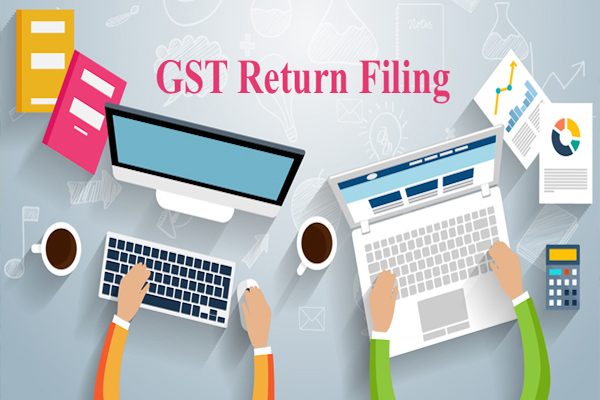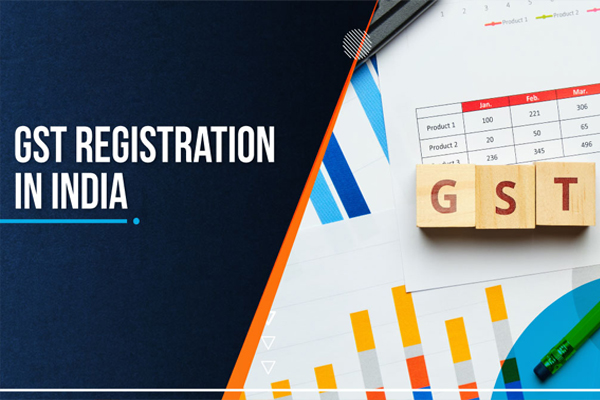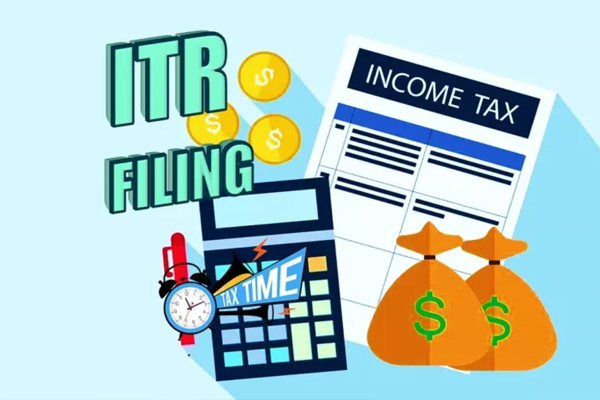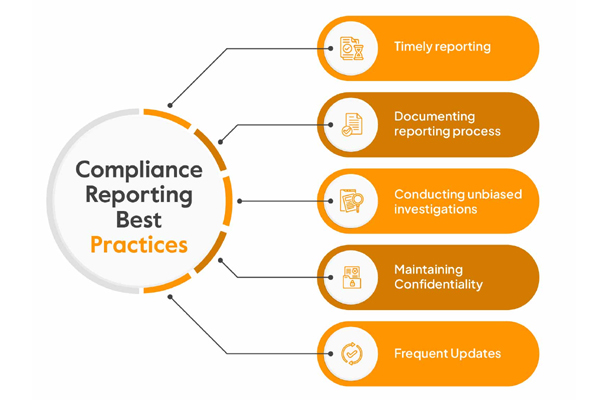


Book Keeping & Accounting
The Innovative range of finance and accounting services is designed to streamline, organise, and integrate crucial financial data for seamless and efficient business operations. We excel at maintaining the right balance in business transactions, ensuring compliance, and optimising business funds.
Our end-to-end accounting solutions provide all the essential information needed to thrive in your business.
Our comprehensive Bookkeeping services will put you in control of your finances with our extensive range. From accounting to tax preparation, we are dedicated to helping you streamline operations, minimise costs, and boost productivity.

GST Registration & Return Filing
GST Registration was introduced in India in July 2017. As per the act, it’s a mixture of indirect taxes like VAT and service taxes. It is required when your business turnover exceeds 40 lakh Rupees a year. Apart from some states like North-Eastern States, J&K, Himachal Pradesh, and Uttarakhand, the limit is only 10 lakh Rupees annually.
For some specific businesses, it is mandatory to register without crossing the turnover limit.

New GST Registration requirement
• Turnover basis – GST registration is required if your business sales or turnover exceeds 40 lakh rupees in a year. For some states in the North East, along with J&K, Himachal Pradesh, and Uttarakhand, the limit is only 10 lakh Rupees annually.
• Event or Exhibition – In the GST Act, it’s called the casual taxpayer. If they don’t have any permanent place of business, they can apply for the casual taxpayer under the GST Registration. It’s valid for a maximum of 90 days (3 months).
• The agent of suppliers or input tax distributor – if you are an input tax service distributor, you must apply for GST Registration to carry forward the benefit of an input tax credit under GST Law.
• Reverse Charge Mechanism – Under GST Law, there is the term reverse charge mechanism, so if you fall under that category, it requires GST registration.
• E-commerce Sellers – if you are an E-commerce Seller of a leading aggregator portal like Flipkart or Amazon, then yes, you need GST Registration.
• E-Commerce Aggregator Portal – if you are thinking of starting your own E-commerce business, then you need GST Registration for the same.
• Outside India Online Portal – if you are software as a service company providing information & database access from outside India to Indian visitors, you must register under the GST.

Income Tax Return Filing
In India, there are two types of taxes: direct tax, which is directly levied upon the individual’s income, and indirect tax, which is levied indirectly upon an individual. Every individual receiving income in India is subject to income tax under the Income Tax Act 1961. Under the Income Tax Act, there can be income from 5 different heads: Income from Salary, House/Property, Capital gains, Business and Profession and other sources. The income of individuals, Hindu undivided families, associations of persons, bodies of individuals, firms and companies are taxed under the Income Tax Act.
Income Tax Return (ITR) can be filed in two ways, i.e., the Online Method and another offline Method. As per the Government Instructions, all the income tax returns will be filed only through the ITR e-filing Method. Offline Method is not available.
So, in the following cases, ITR Online e-filing is Mandatory from 1st April 2022 if:
1) Your taxable gross income exceeds the limit as per the Income Tax Department of any F.Y.
2) You want to claim any TDS Refund.
3) You want to take the benefits of carrying forward the losses.
5) Any foreign travel expenses are more than 2 lakh Rupees in a year.
6) The electricity bill costs more than 1 lakh Rupees a year.
7) Total business sales or turnover is more than 60 lakh Rupees in a year.
8) You have a yearly TDS of more than 25,000 Rupees.

TDS (Tax Deducted at Source)
The concept of TDS was introduced with an aim to collect tax from the very source of income as per Income Tax section 192. As per this concept, a person (deductor) who is liable to make payment of specified nature to any other person (deductee) shall deduct tax at source and remit the same into the account of the Central Government.
TDS applies to all residents of India and NRIs as per Income Tax Act of India. Income earned by NRIs in India, including rent, interest, and dividends, is subject to Tax Deduction at Source (TDS). This means that anyone making payments to NRIs must deduct the applicable tax before crediting the income or when it accrues, depending on which comes first.

TCS (Tax Collection at Source)
Tax collection at source (TCS) is an extra amount collected as tax by a seller of specified goods from the buyer at the time of sale over and above the sale amount and is remitted to the government account.
TCS is Tax Collected at Source by seller from buyers at the time of selling some prescribed goods. Seller is called ‘collector’ and the buyer is called ‘collectee’.

Professional Tax
Profession tax is the direct tax levied and collected by the state governments in India. It is a direct tax. A person earning an income from salary or anyone practising a profession such as chartered accountant, company secretary, lawyer, doctor, etc., must pay this professional tax.
The state government levies professional tax and thus can vary depending on your state. The maximum limit of which you can be charged is Rs 2500. The tax is calculated based on the slabs.

Portfolio Management & Tax
Taxes can substantially affect investment returns, potentially eroding profitability if not carefully managed. In India, both short-term capital gains (STCG) and long-term capital gains (LTCG) are subject to taxes. The STCG tax rate is currently 15%, while the LTCG tax rate is 10% or 20% for gains above 1 lakh Rupees.
However, dividends of holding companies are credited into the investor’s account, and if the dividend is more than ₹5,000, a 10% TDS (tax deducted at source) is applicable. The dividend received is added to the investor’s income and gets taxed at the investor’s income tax slab rate.

Reporting and Compliance
Regulatory compliance in India involves an organisation’s adherence to laws, regulations, rules and specifications relevant to its business processes. It regulated a vast arena of monitoring and implementation processes.
Compliance reporting produces a documented summary of an organisation’s compliance status aligned with industry standards, relevant laws, corporate policies and regulatory requirements.
And thus pay the taxes he is legally bound to pay. For every government aiming for tax revenue mobilisation, a law (tax) abiding public is always an asset.
The compliance portal is the dedicated portal operationalised under Project Insight to enable e-verification (i.e. capture of response on specific compliance-related issues in a structured manner) for effective compliance monitoring and evaluation.

Strategic Planning
Strategic management is the ongoing planning, monitoring, analysis and assessment of an organisation’s necessities to meet its goals and objectives. Changes in business environments will require organisations to assess their strategies for success constantly. Tax planning is the process of managing your financial resources to minimise your tax liability and maximise your financial benefits. Indian business owners need an effective tax planning strategy to save taxes; increase profits, and improve cash flow.

Management Reporting & Consultancy
A Management consulting report contains a consultant’s expert understanding and advice on a particular subject. It is a document created by a consultant or consulting firm to communicate their analysis, findings, insights, and recommendations to a client or organisation. A management consultant or analyst provides an outside perspective on problem-solving, best practices, and strategy to help companies improve their performance. Management consulting covers a broad range of industries and business needs.

Company Formation & Secretarial Services
Company secretarial services are an essential component of business administration. Primarily concerned with corporate governance, effective administration, and regulation compliance, company secretarial services encompass various legal, ethical, and corporate responsibilities.
Outsourced company secretarial service providers stay up-to-date with changes in legislation and monitor deadlines. This knowledge enables them to prepare and file necessary documents for your company to meet the relevant deadlines and provide expert advice.
Our services include the following:
• Incorporation of new companies.
• Completion and filing of the Confirmation Statement.
• Maintenance of your statutory books and registers.
• Share issues, transfers, and capital restructuring.
• Dividend documentation.
• Drafting amendments to articles of association.
• AGM procedures and advice on directors’ duties and responsibilities.
• Review of corporate governance and best practice procedures.
• Health review of your statutory records
